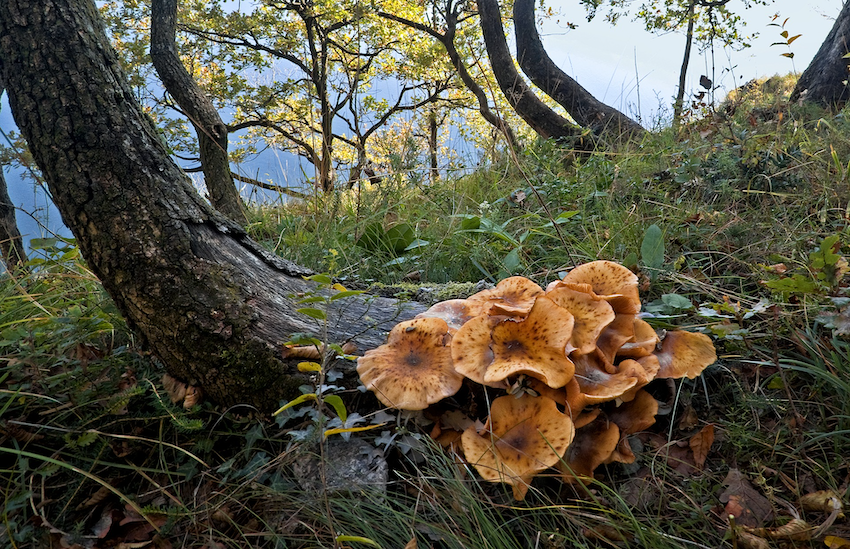
Summer’s prolonged droughts and extreme temperatures have made plants more vulnerable to common problems, with the Royal Horticultural Society anticipating an increase in certain fungi and insects in the coming months.
The charity is urging gardeners to be ‘more vigilant’ for plant problems this autumn, particularly those caused by honey fungus and glasshouse thrips.
Honey fungus (Armillaria sp) is described by the RHS as the ‘most destructive fungal disease in UK gardens’. It spreads underground, attacking and killing the roots of perennial plants.
Honey fungus can be more aggressive when susceptible plants have experienced heat and drought stress so gardeners should look for the most characteristic symptom – white fungal growth between the bark and wood, usually at ground level. Clumps of honey-coloured mushrooms sometimes appear briefly on infected stumps too.
Glasshouse thrips (Heliothrips haemorrhoidalis) are also benefitting from a changing climate and have thrived this summer. These sap-sucking insects were restricted to heated glasshouses in the past but in the last decade they have outgrown their name and increasingly survive outdoors.
Symptoms to look out for include mottling of upper leaf surfaces and silvery discolouration. You might also notice small red-brown spots on leaves, caused by the insects’ excrement.
Protecting your garden from common plant problems
To protect your garden from insects and fungi such as these, the RHS suggests focusing on good plant health all year round. Ensure plants are growing in suitable conditions and water young plants less often but more thoroughly during establishment.
RHS Biosecutity lead, Sara Redstone, says one of the best ways to maintain healthy plants is to ‘let nature help’.
‘Try not to over-tidy your garden – those seed heads, nodding flower heads and fallen leaves and twigs will support a wealth of wildlife including birds and predatory beetles over the next few months that will help keep populations in check before they become a nuisance.
‘Avoiding over-crowding of plants and considering the right plant in the right place will also help keep your garden healthy.
‘If you haven’t already got them in place and you have the space, consider installing water butts in preparation for next year to help keep plants replenished in drier spells, and add compost to soils to keep plants nourished and refreshed.’
Sara also urges gardeners to plant species which tolerate weather extremes. ‘These resilient plants will be less stressed by the increasingly frequent harsh conditions we expect to see under climate change, and therefore stand a better chance of surviving disease.’





One Response
Thank you for the pictures re fungi. How do you kill them. Can you touch them etc. there was a farming program on bbc re mushrooms encouraging people to scavange. Years ago on grouville golf course some one picked and are them. Died three months later. People should be warned! In france you can take them to the pharmist for clearance..
Another warning is deadly nightshade. The seem to grow near blackberries or underthem. You children used to blue berries can poison themselves and small ones can be eating them while mum picks the black berries. Perhaps you could do an article of dangers. Best wishes heather uwins